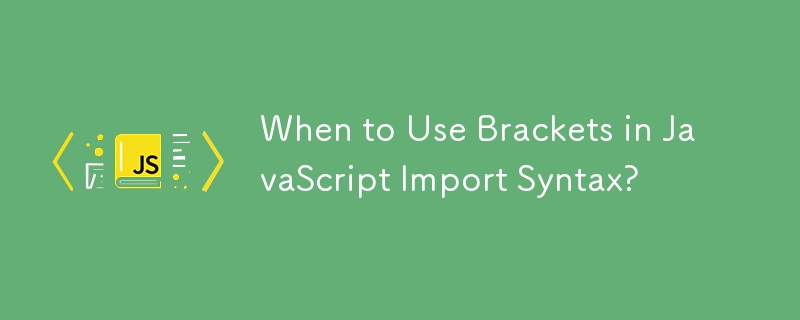

Using Brackets with JavaScript Import Syntax
In JavaScript, there are various ways to import modules and libraries. One common method involves using brackets with the import syntax. Syntax:
<code class="javascript">import { Component, PropTypes } from 'react';</code>This syntax differs from a simpler version:
<code class="javascript">import React, Component, PropTypes from 'react';</code>
Understanding the Difference
The syntax with brackets imports only specific named exports, while the syntax without brackets imports both the default export and named exports. Here's a breakdown:
<code class="javascript">import React, { Component, PropTypes } from 'react';</code>This combines the two common syntaxes:
<code class="javascript">import React from 'react';
import { Component, PropTypes } from 'react';</code>In general, modules provide either a default export or named exports. However, it's possible to have both. In cases where the most common feature is exported as the default, while additional features are exported as named exports, the syntax with brackets is appropriate.
Additional Notes
The above is the detailed content of When to Use Brackets in JavaScript Import Syntax?. For more information, please follow other related articles on the PHP Chinese website!
 Solution to the problem that exe files cannot be opened in win10 system
Solution to the problem that exe files cannot be opened in win10 system
 How to integrate idea with Tomcat
How to integrate idea with Tomcat
 js rounding
js rounding
 Solution to garbled characters when opening excel
Solution to garbled characters when opening excel
 How to buy, sell and trade Bitcoin
How to buy, sell and trade Bitcoin
 A memory that can exchange information directly with the CPU is a
A memory that can exchange information directly with the CPU is a
 How to set automatic line wrapping in word
How to set automatic line wrapping in word
 Introduction to screenshot shortcut keys in win8
Introduction to screenshot shortcut keys in win8




